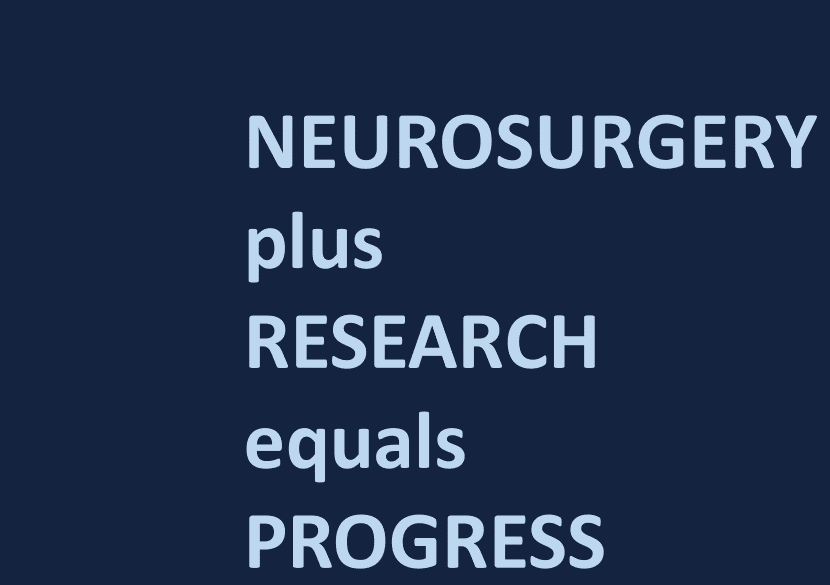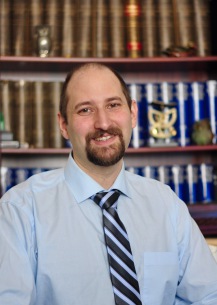
Georg Karpel-Massler, M.D., Ph.D.
Address
Department of Neurosurgery
Ulm University Medical Center
Albert-Einstein-Allee 23
D-89081 Ulm
Germany
Phone: +49-731-5000
FAX: +49-731-500-55002
georg.karpel@uniklinik-ulm.de
georg.karpel@gmail.com
Education and Training
MD, 2005 - Ruprecht-Karls-University, Heidelberg, Germany
2005-2008 Residency in Neurosurgery - Ruprecht-Karls-University, Heidelberg, Germany
2008-2012 Residency in Neurosurgery - Ulm University Medical Center, Ulm, Germany
2012 Board certification for Neurosurgery (German Board of Neurosurgeons)
2012-2014 Staff Neurosurgeon - Ulm University Medical Center, Ulm, Germany
2014-2015 Postdoctoral research fellowship, Columbia University Medical Center, New York, NY, USA
2015-2016 Assistant Clinical Professor, Department of Pathology & Cell Biology, Columbia University Medical Center, New York, NY, USA
2016 Habilitation
2017 ECFMG Certification
2019 Professor, Department of Neurosurgery,
Ulm University Medical Center, Ulm, Germany
Memberships
German Society of Neurosurgery
European Association of Neurosurgical Societies
American Association for Cancer Research
Research Summary
My research focuses on developing novel therapeutic strategies for the treatment of patients with cancer. In particular, I have a profound interest in adult and pediatric neuro-oncological diseases with a special emphasis on a malignant brain tumor termed glioblastoma.
I am striving for a better understanding of the biology of malignant diseases such as glioblastoma and to learn how to overcome therapeutic resistance. The diversity of different dysregulated tumor-driving pathways within the same tumor represents one of the central characteristics responsible for the fact that solid tumors are so difficult to treat. Considering this premise, it seems unlikely that one reagent that targets one dysregulated oncogenic pathway only, will suffice for an efficient treatment of cancerous diseases such as glioblastoma.
Therefore, my work focuses on combining multiple treatment modalities targeted at different aspects of tumor cell features and oncogenic signaling to ultimately allow for a better tumor control and eventually even to overcome these diseases.
Selected Publications
Cao Q, Hajosch A, Kast RE, Loehmann C, Hlavac M, Fischer-Posovszky P, Strobel H, Westhoff MA, Siegelin MD, Wirtz CR, Halatsch ME, Karpel-Massler G. Tumor Treating Fields (TTFields) combined with the drug repurposing approach CUSP9v3 induce metabolic reprogramming and synergistic anti-glioblastoma activity in vitro. Br J Cancer. 2024 Feb 23. doi: 10.1038/s41416-024-02608-8. Epub ahead of print. PMID: 38396172
Torrini C, Nguyen TTT, Shu C, Mela A, Humala N, Mahajan A, Seeley EH, Zhang G, Westhoff MA, Karpel-Massler G, Bruce JN, Canoll P, Siegelin MD. Lactate is an epigenetic metabolite that drives survival in model systems of glioblastoma. Mol Cell. 2022 Aug 18;82(16):3061-3076.e6. doi: 10.1016/j.molcel.2022.06.030. Epub 2022 Aug 9. PMID: 35948010
Halatsch ME, Dwucet A, Schmidt CJ, Mühlnickel J, Heiland T, Zeiler K, Siegelin MD, Kast RE, Karpel-Massler G. In Vitro and Clinical Compassionate Use Experiences with the Drug-Repurposing Approach CUSP9v3 in Glioblastoma. Pharmaceuticals (Basel). 2021 Nov 29;14(12):1241. doi: 10.3390/ph14121241. PMID: 34959641
Dwucet A, Pruss M, Cao Q, Tanriover M, Prabhu VV, Allen JE, Peraud A, Westhoff MA, Siegelin MD, Wirtz CR, Karpel-Massler G. ONC201/TIC10 Is Empowered by 2-Deoxyglucose and Causes Metabolic Reprogramming in Medulloblastoma Cells in Vitro Independent of C-Myc Expression. Front Cell Dev Biol. 2021 Nov 26;9:734699. doi: 10.3389/fcell.2021.734699. PMID: 34900991
Golla C, Bilal M, Dwucet A, Bader N, Anthonymuthu J, Heiland T, Pruss M, Westhoff MA, Siegelin MD, Capanni F, Wirtz CR, Kast RE, Halatsch ME, Karpel-Massler G. Photodynamic Therapy Combined with Bcl-2/Bcl-xL Inhibition Increases the Noxa/Mcl-1 Ratio Independent of Usp9X and Synergistically Enhances Apoptosis in Glioblastoma. Cancers (Basel). 2021 Aug 17;13(16):4123. doi: 10.3390/cancers13164123. PMID: 34439278
Nguyen TTT, Shang E, Shu C, Kim S, Mela A, Humala N, Mahajan A, Yang HW, Akman HO, Quinzii CM, Zhang G, Westhoff MA, Karpel-Massler G, Bruce JN, Canoll P, Siegelin MD. Aurora kinase A inhibition reverses the Warburg effect and elicits unique metabolic vulnerabilities in glioblastoma. Nat Commun. 2021 Sep 1;12(1):5203. doi: 10.1038/s41467-021-25501-x. PMID: 34471141
Halatsch ME, Kast RE, Karpel-Massler G, Mayer B, Zolk O, Schmitz B, Scheuerle A, Maier L, Bullinger L, Mayer-Steinacker R, Schmidt C, Zeiler K, Elshaer Z, Panther P, Schmelzle B, Hallmen A, Dwucet A, Siegelin MD, Westhoff MA, Beckers K, Bouche G, Heiland T. A phase Ib/IIa trial of 9 repurposed drugs combined with temozolomide for the treatment of recurrent glioblastoma: CUSP9v3. Neurooncol Adv. 2021 Jun 24;3(1):vdab075. doi: 10.1093/noajnl/vdab075. PMID: 34377985
Nguyen TTT, Zhang Y, Shang E, Shu C, Torrini C, Zhao J, Bianchetti E, Mela A, Humala N, Mahajan A, Harmanci AO, Lei Z, Maienschein-Cline M, Quinzii CM, Westhoff MA, Karpel-Massler G, Bruce JN, Canoll P, Siegelin MD. HDAC inhibitors elicit metabolic reprogramming by targeting super-enhancers in glioblastoma models. J Clin Invest. 2020 Jul 1;130(7):3699-3716. doi: 10.1172/JCI129049
Pruss M, Dwucet A, Tanriover M, Hlavac M, Kast RE, Debatin KM, Wirtz CR, Halatsch ME, Siegelin MD, Westhoff MA, Karpel-Massler G. Dual metabolic reprogramming by ONC201/TIC10 and 2-Deoxyglucose induces energy depletion and synergistic anti-cancer activity in glioblastoma. Br J Cancer. 2020 Apr;122(8):1146-1157. doi: 10.1038/s41416-020-0759-0. Epub 2020 Mar 2. PMID: 32115576
Karpel-Massler G, Nguyen TTT, Shang E, Siegelin MD. Novel IDH1-Targeted Glioma Therapies. CNS Drugs. 2019 Dec;33(12):1155-1166. doi: 10.1007/s40263-019-00684-6. PMID: 31768950
Siegelin MD, Schneider E, Westhoff MA, Wirtz CR, Karpel-Massler G. Current state and future perspective of drug repurposing in malignant glioma. Semin Cancer Biol. 2021 Jan;68:92-104. doi: 10.1016/j.semcancer.2019.10.018. Epub 2019 Nov 14. PMID: 31734137
Halatsch ME, Kast RE, Dwucet A, Hlavac M, Heiland T, Westhoff MA, Debatin KM, Wirtz CR, Siegelin MD, Karpel-Massler G. Bcl-2/Bcl-xL inhibition predominantly synergistically enhances the anti-neoplastic activity of a low-dose CUSP9 repurposed drug regime against glioblastoma. Br J Pharmacol. 2019 Sep;176(18):3681-3694. doi: 10.1111/bph.14773. Epub 2019 Jul 30. PMID: 31222722
Hlavac M, Dwucet A, Kast RE, Engelke J, Westhoff MA, Siegelin MD, Debatin KM, Wirtz CR, Halatsch ME, Karpel-Massler G. Combined inhibition of RAC1 and Bcl-2/Bcl-xL synergistically induces glioblastoma cell death through down-regulation of the Usp9X/Mcl-1 axis. Cell Oncol (Dordr). 2019 Jun;42(3):287-301. doi: 10.1007/s13402-019-00425-3. Epub 2019 Mar 11. PMID: 30859392
Karpel-Massler G, Ishida CT, Bianchetti E, Zhang Y, Shu C, Tsujiuchi T, Banu MA, Garcia F, Roth KA, Bruce JN, Canoll P, Siegelin MD. Induction of synthetic lethality in IDH1-mutated gliomas through inhibition of Bcl-xL. Nat Commun. 2017 Oct 20;8(1):1067. doi: 10.1038/s41467-017-00984-9. PMID: 29057925
Karpel-Massler G, Ishida CT, Bianchetti E, Shu C, Perez-Lorenzo R, Horst B, Banu M, Roth KA, Bruce JN, Canoll P, Altieri DC, Siegelin MD. Inhibition of Mitochondrial Matrix Chaperones and Antiapoptotic Bcl-2 Family Proteins Empower Antitumor Therapeutic Responses. Cancer Res. 2017 Jul 1;77(13):3513-3526. doi: 10.1158/0008-5472.CAN-16-3424. Epub 2017 May 18. PMID: 28522750
Karpel-Massler G, Horst BA, Shu C, Chau L, Tsujiuchi T, Bruce JN, Canoll P, Greene LA, Angelastro JM, Siegelin MD. A Synthetic Cell-Penetrating Dominant-Negative ATF5 Peptide Exerts Anticancer Activity against a Broad Spectrum of Treatment-Resistant Cancers. Clin Cancer Res. 2016 Sep 15;22(18):4698-711. doi: 10.1158/1078-0432.CCR-15-2827. Epub 2016 Apr 28. PMID: 27126996
Honors and Awards
2016 - European Association of Neurosurgical Societies Observership Award
2014 - Postdoctoral Scholarship, Dr. Mildred Scheel Foundation, German Cancer Aid
2012 - Young Investigator’s Award Ulm Medical School, Germany
2002 - Erasmus-Stipend
2001 - Stipend of the Henry M. Jackson Foundation


